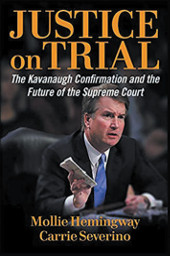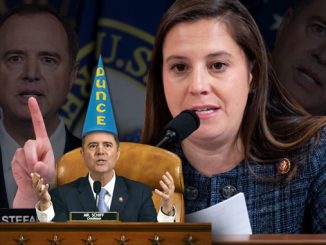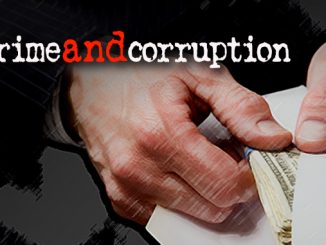
By S.T. Patrick
The death of Supreme Court Justice Ruth Bader Ginsburg has set off a firestorm in Washington, D.C. and around the nation. With her passing occurring almost two months before the presidential election, some questioned whether it was ethical for President Donald Trump to nominate a new justice, an act which has constitutional legitimacy. Democrats have angrily promised judicial revenge, which may result in a court-packing scheme on the federal level, if not the Supreme Court itself.
Ginsburg has been the subject of a political fandom that has generated documentaries, t-shirts, and the nickname “Notorious RBG” (a parody of murdered rapper Notorious BIG). While Ginsburg can be categorized as a liberal justice (appointed by Bill Clinton), her legacy is more complex.
Ginsburg is best known for landmark cases such as writing the majority opinion opening the Virginia Military Institute to women, protecting voting rights, expanding the Americans with Disabilities Act to entire communities, supporting same-sex marriage, and striking down two antiabortion provisions in Texas. Yet, neither her legal opinions nor her votes were in step with the Democratic National Committee platform. As Kimberly Wehle wrote, “History should take care before labeling Ginsburg an uncompromising liberal.”
A 1993 Congressional Quarterly archive article described Ginsburg as a “considered moderate to conservative on criminal issues and business law,” relatively liberal “on issues such as free speech, religious freedom, and separation of church and state,” and even more liberal on “civil rights.”
Ginsburg, for example, dissented in the case of Republican Party of Minnesota v. White in 1992. The majority struck down an idea that Minnesotans had long had that judges up for election should not express political views during a campaign, that they are to be impartial and not politicians. Ultimately, this was ruled as unconstitutional and a violation of freedom of speech. But Ginsburg argued that the “constitutional guarantee of an independent, impartial judiciary” in an election season overrides a right to political speech for campaigning judges. She did not believe that a judge should be legislating from the bench. Though she did speak out against the Donald Trump campaign in 2016, this was the one rare exception when she involved herself directly in politics.
She sided with justices such as Clarence Thomas, Samuel Alito, and Brett Kavanaugh on issues such as probationary supervision for ex-felons, overturning fraud convictions on two associates of former New Jersey Gov. Chris Christie, and the construction of the Atlantic Coast Pipeline.
Ginsburg’s pursuit of sexual discrimination was not always in favor of righting wrongs against women. Some of her most high-profile cases were her defenses of men before the nation’s highest court. In 1976, Craig v. Boren catapulted her to legal fame. She argued that her male plaintiff was the victim of an unconstitutional, sexist statute in Oklahoma that required men to be older than women to buy alcohol. In Weinberger v. Wiesenfeld (1975) she represented a widower who was barred from receiving special Social Security benefits upon the passing of his wife (widows received the benefits, but widowers did not). In 1977, Ginsburg represented another anti-male sex discrimination case in Califano v. Goldfarb. She argued that widows should not receive a greater survivor benefit that widowers from the Social Security Act.
For these stances, it was the radical left that criticized her. “She represented white male plaintiffs, alleged that a law or policy that gave preference to women was reverse sex discrimination against her male plaintiff, and claimed that this differentiation on the basis of sex was thus unconstitutional,” wrote Muqing Zhang at “TheEstablishment” website. “She did this with the explicit goal of decimating preferential policies towards women, because she, as a white woman, held the white feminist belief that any distinction drawn between men and women—even in the form of affirmative action—meant that (white) women could never be seen as equal to (white) men. . . . Ginsburg has become an enormous cultural icon, yet her brand of feminism is only beneficial to one type of woman—class-privileged white women.”
Democrats in both the Senate (Chuck Schumer) and House (Alexandria Ocasio-Cortez) have been raging in fury that the Democrats should add more Supreme Court justices to tilt the court leftward if Joe Biden is victorious. There has also been talk of adding up to 400 new federal judges. In 2019 there was also opposition from the nation’s highest court—from Ginsburg herself.
In an interview with National Public Radio in 2019, Ginsburg was asked what she thought about Democratic presidential candidates speaking favorably of adding justices to the court. “Nine seems to be a good number. It’s been that way for a long time,” Ginsburg told NPR. “I think it was a bad idea when FDR tried to pack the court.”
Ginsburg also expressed serious concern with the partisan power cycle that adding justices could create. “If anything would make the court look partisan,” Ginsburg said, “it would be that—one side saying, ‘When we’re in power, we’re going to enlarge the number of judges, so we would have more people who

would vote the way we want them to.’”
If the Democratic Party wants to fulfill Ginsburg’s dying wishes, they can decide to leave the Supreme Court justices at a healthy nine and refrain from starting a political cycle of fracturing the federal courts into thinly divided pieces with newly appointed justices ruling over the newest judicial shards.
S.T. Patrick holds degrees in both journalism and social studies education. He spent 10 years as an educator and now hosts the “Midnight Writer News Show.” His email is [email protected]. He is also an occasional contributor to TBR history magazine and the current managing editor of Deep Truth Journal (DTJ), a new conspiracy-focused publication available from the AFP Online Store.






